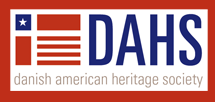Keywords
European emigration, American Congregationalism, Lutheranism, religion
Abstract
When European emigration to the United States surged anew after the Civil War, American Protestants of several denominations extended both spiritual and economic assistance to those newcomers who, in their perception, most closely shared their own religious traditions. Scandinavian immigrants, nearly all of whom were at least nominally Protestant, naturally received a generous portion of this aid, much of which came in the form of ministerial education. Young men who looked forward to careers as Lutheran pastors had access to ethnic theological colleges anchored in that tradition if not always in their respective national heritages. Norwegian Lutheran seminarians in the Midwest, for example, were sent to St. Louis to study theology with German-speaking counterparts in the middle of the nineteenth century, and when specifically Norwegian seminaries were founded they frequently enrolled Danes. Yet other northern European immigrants left their birthright Lutheran heritage when exposed to the denominational diversity that characterized Christianity in the United States. Thus detaching themselves from the resources and fellowship of the churches that predominated among ScandinavianAmericans, these newcomers relied especially heavily on the generosity of the firmly established indigenous communions. American Baptists, for instance, opened in 1871 an institute for training aspiring Nordic
ministers at their seminary in Morgan Park, Illinois, and Yankee Methodists soon followed suit at which eventually became Garrett-Evangelical Theological Seminary in Evanston. Outside what is sometimes called "mainstream" Protestantism, Seventh-day Adventists began in the 1870s a Scandinavian department at their college in Battle Creek, Michigan, the forerunner of Andrews University. The influential role of these and analogous institutions in the kaleidoscope of late nineteenth-century ethnic religion in the United States led one historian of American Protestantism to generalize that "so ample were these facilities that by 1900 a body of clergymen ready to meet all calls for independent or assistant pastorates had come into existence."
Recommended Citation
Hale, Frederick
(1984)
"The Dano-Norwegian Department of Chicago Theological Seminary,"
The Bridge: Vol. 7:
No.
1, Article 6.
Available at:
https://scholarsarchive.byu.edu/thebridge/vol7/iss1/6
Included in
European History Commons, European Languages and Societies Commons, Regional Sociology Commons


